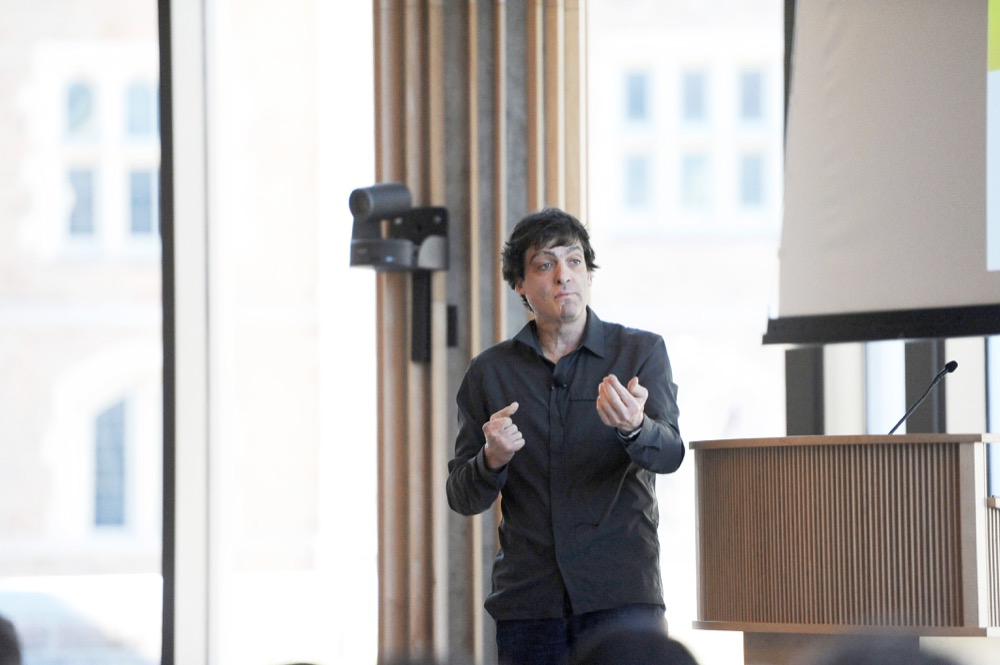Assembly Series
Economist, TED presenter discusses methods of self-control
Dan Ariely, a New York Times bestselling author and five-time TED presenter, discussed his research concerning the motivations behind our oft-dangerous short-term behaviors despite our positive future goals Thursday in Hillman Hall.
Ariely, also a professor of psychology and behavioral economics at Duke University, spoke to a crowd of Washington University students and St. Louis community members as part of the Assembly Series.

Behavioral economist and frequent TED presenter Dan Ariely speaks to the Wash. U. com- munity Thursday in Hillman Hall. Ariely’s talk “The Art & Science of Self Control: How to Act in Our Long-Term Best Interests” brought a packed audience.
Mary McKernan McKay, the new dean of the Brown School of Social Work, opened the event by discussing the goals of the event’s sponsor, the Envolve Center, in improving the health of populations.
“My job as the new dean of the Brown School is first of all to tell you how proud I am to have you all sit in Hillman Hall,” she said. “To have you be part of a mission that has social justice, social change, health equity, at its center.”
Ariely spoke to the difficulty of achieving long-term goals in the present and people’s tendencies to push things off to the future.
“In the future we are wonderful people,” Ariely said. “We will exercise, diet, everything will be fantastic in the future. Of course, we never get to live in that future. We get to live in the present and in the present we fail time after time after time after time. And it’s not only that we fail time after time. Society is designed to tempt us to fail.”
Ariely told the audience a personal story about his time as part of a clinical trial to cure hepatitis C. The way he motivated himself to finish the trial, despite the unpleasant side effects of the medication, was to reengineer his environment to facilitate good decision-making.
While conducting research, he studied this phenomenon further, in the context of the common psychological idea of reward-substitution, discovering that acting now to promote our long-term interests is unattractive because the reward value is extremely low. However, Ariely said, even insignificant rewards in the present are able to motivate behavior.
“It is something that comes now,” he said. “The moment that we have something that is immediate, we are much more motivated.”
Through his research, Ariely discovered that using loss-aversion, responding to bad behavior by taking money away, was far more effective than rewarding monetary bonuses.
The technique of random reinforcement and the regret lottery, or showing people the rewards that could have resulted from good behavior, was even more effective, he said. By giving people the chance to have won a lottery by performing a specific behavior and later taking it away for non-compliance, researchers found that the regret was a powerful motivator.
Later, Ariely conducted a brief discussion about a second useful mechanism for self-control called the Ulysses Contract, a way anyone can influence their future behavior through current action.
“I know that my future self is likely to misbehave, and I’m going to do something now that’ll prevent my future self from misbehaving,” Ariely said. “Either because I will not be able to take any action or because I will not know the temptation existed.”
Although he acknowledged our difficulty with exercising willpower, Ariely closed by encouraging audience members to use these techniques to explore working toward improving their future selves.
“We have the tools to design the world in a better way that’ll be more compatible with our long-term goals,” Ariely said. “We just have to decide to do it and take some steps toward it.”
